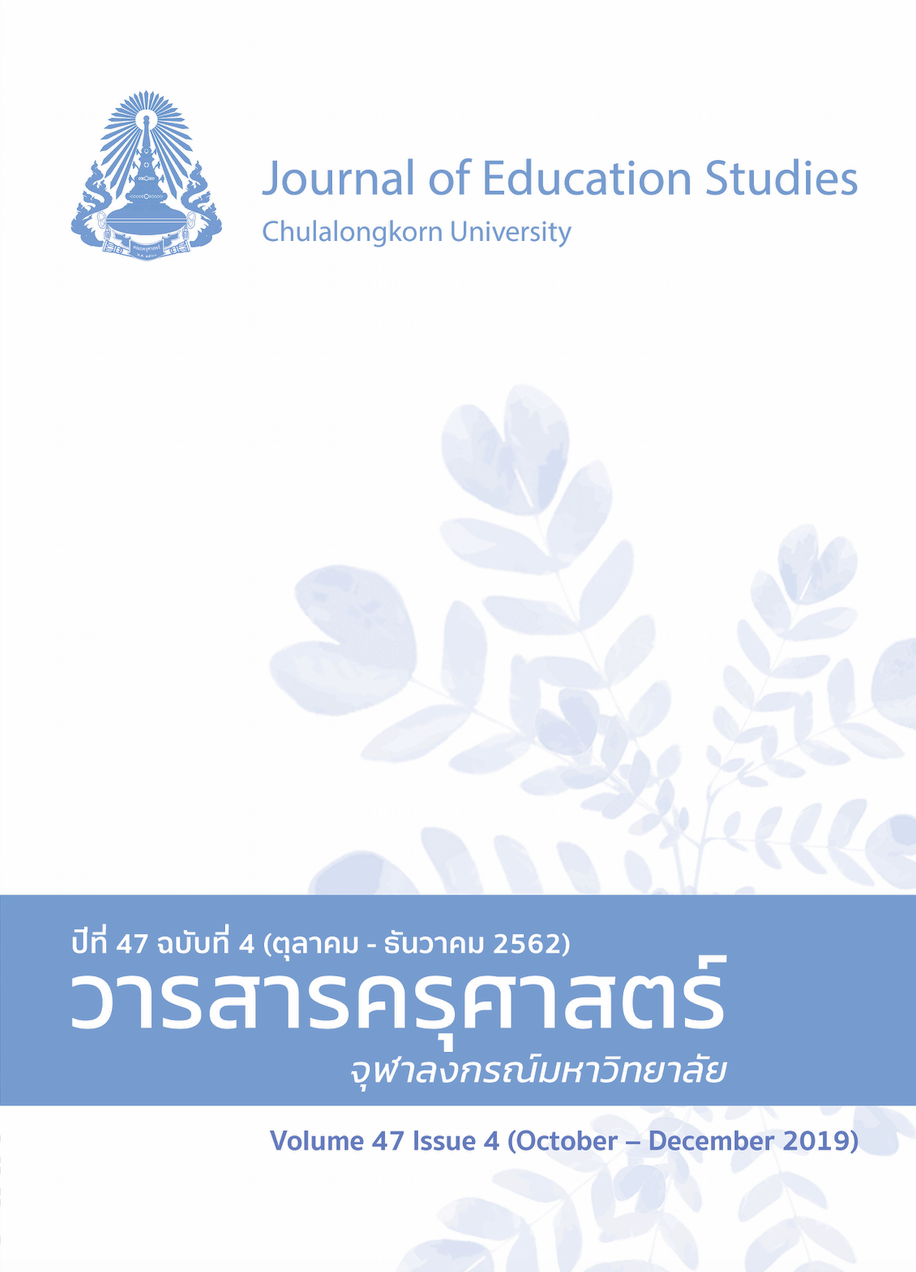Concept of Leadership Development Strategies for Secondary School Administrators in Accordance with the Concept of Global Leadership Development in Students
Keywords:
GLOBAL LEADERSHIP, LEADERSHIP DEVELOPMENTAbstract
The purpose of this study was to study the conceptual framework of research on leadership development strategies for secondary school administrators in accordance with the concept of global leadership development of students. The study includes input from 5 experts. The assessment form as tool was used to assess the suitability and feasibility of the conceptual framework and IOC index. The research found that: 1) The leadership development concept of secondary school administrators in accordance with the concept of global leadership development of students had two conceptual frameworks. 2) The concept of global leadership used the pyramid model of global leadership consisting of global knowledge, threshold traits, attitudes and orientations, interpersonal skills and system skills. 3) The concept of leadership development was based on approaches to leadership development consisting of personal growth, conceptual understanding, feedback and skill building. 4) The results of the evaluation by the experts found that both conceptual frameworks were appropriate and feasible for the development of global leadership.
References
กล้าศักดิ์ จิตต์สงวน. (2555). รูปแบบการพัฒนาภาวะผู้นำเชิงกลยุทธ์สำหรับผู้บริหารโรงเรียนมัธยมศึกษา (วิทยานิพนธ์ปริญญาดุษฎีบัณฑิต ไม่ได้ตีพิมพ์). จุฬาลงกรณ์มหาวิทยาลัย, กรุงเทพมหานคร.
โครงการพัฒนาประเทศไทยเป็นศูนย์กลางการศึกษาในภูมิภาค. (2555). Thailand Education Hub. สืบค้นจาก https://edhubthai.wordpress.com/education-hub/
คณะกรรมาธิการปฏิรูปการศึกษาของประธานาธิบดี สาธารณรัฐเกาหลี. (2546). การปฏิรูปการศึกษา สำหรับศตวรรษที่ 21 เพื่อความเป็นผู้นำในยุคสารสนเทศและโลกาภิวัตน์. กรุงเทพมหานคร: สำนักงานคณะกรรมการการศึกษาแห่งชาติ.
ทิพย์สิริ กาญจนวาสี และ ศิริชัย กาญจนวาสี. (2559). วิธีวิทยาการวิจัย. กรุงเทพมหานคร: ทรีบีการพิมพ์และตรายาง.
สำนักเลขาธิการนายกรัฐมนตรี. (2558). ข่าวสำนักงานรัฐมนตรี 240/2558 การเตรียมความพร้อมสู่ประชาคมอาเซียนของศธ. สืบค้นจาก https://www.moe.go.th/websm/2015/jul/240.html
เอกชัย กี่สุขพันธ์. (2554). การบริหาร ทักษะและการปฏิบัติ (พิมพ์ครั้งที่ 4). กรุงเทพมหานคร: สุขภาพใจ.
ภาษาอังกฤษ
Allen, S. J., & Hartman, N. S. (2008). Leadership development: An exploration of sources of learning. SAM Advanced Management Journal, 73(1), 10-62.
Coelli, M., & Green, D. A. (2012). Leadership effects: School principals and student outcomes. Economics of Education Review, 31(1), 92-109.
Day, D. V. (2001). Leadership development: A review in context. The Leadership Quarterly, 11(4), 581-613.
Dimmock, C., & Cheng, Y. T. (2013). Educational leadership in Singapore tight coupling, sustainability, scalability, and succession. Journal of Educational Administration, 51(3), 320-340.
Keung, E. K., & Rockinson-Szapkiw, A. J. (2013). The relationship between transformational leadership and cultural intelligence: A study of international school leaders. Journal of Educational Administration, 51(6), 836-854.
Osland, J. S. (2013). An overview of the global leadership literature. In M. E. Mendenhall, J. S. Osland, A. Bird, G. R. Oddou, M. L. Maznevski, M. J. Stevens, & G. K. Stahl (Eds.), Global leadership: Research, practice, and development (2nd ed.). New York: Routledge.
Scott, G., Coates, H., & Anderson, M. (2008). Learning leadership in times of change: Academicleadership capabilities for Australian higher education. Australia: University of Western Sydney and Australian Council for Educational Research.
Sergiovanni, T. J., McCarthy, M. M., Fowler, F. C., & Kelleher, P. (2004). Educational governance and administration (5th ed.). Boston, MA: Pearson.




